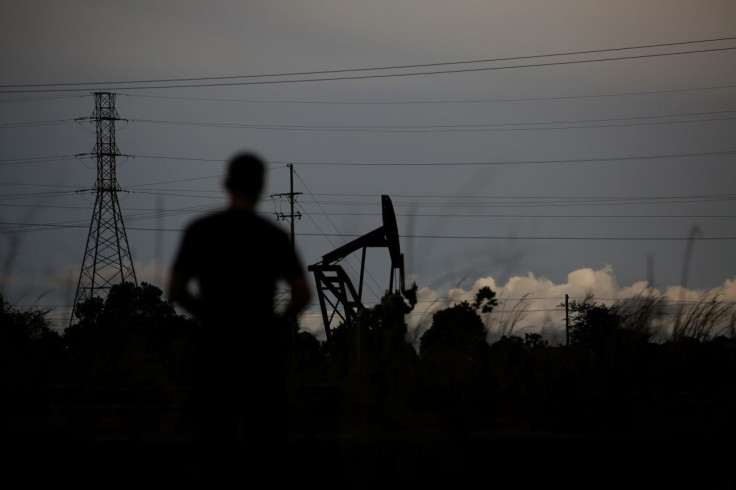Oil Rises As Fears Of Russian Oil Sanctions Spur Supply Concerns

Oil prices rose on Tuesday, with Brent surging past $126 a barrel, as fears of formal sanctions against Russian oil and fuel exports spurred concerns about supply availability.
Benchmark Brent crude futures for May climbed $3.07, or 2.49%, to $126.28 a barrel at 0756 GMT.
U.S. West Texas Intermediate (WTI) crude futures for April delivery rose $2.29, or 1.92%, to 121.69 a barrel.
Russia is the world's second-biggest oil exporter and ships out about 7 million barrels per day of crude and oil products combined.
The United States, the world's biggest oil consumer, may move on its own to ban Russian oil imports following Russia's invasion of Ukraine on Feb. 24.
However, Germany, the biggest buyer of Russian crude oil, has rejected plans for an energy embargo. Replacing the vast quantities of Russian fuel and oil in the market if they has raised supply concerns about oil traders, prompting the surge in prices.
A "ban of Russian oil exports of (about) 7 million barrels per day of crude and oil products is a big reason for a further expected spike in oil prices...Until then $125 to $130 would be a see-saw range," said N.S. Ramaswamy, head of commodities, Ventura Securities Ltd.
A senior U.S. official, speaking on condition of anonymity, told Reuters on Monday that no final decision had been made but "it is likely (to be) just the U.S. if it happens."
A Russian halt to its energy exports in response to the sanctions already enacted has also pushed prices higher.
Russia on Monday warned it could stop the flow of natural gas through pipelines from Russia to Germany in response to Berlin's decision last month to halt the opening of the controversial new Nord Stream 2 pipeline.
If all of Russia's oil exports were blocked from global markets, analysts have said prices could rise to $200 a barrel, while Russia's deputy prime minister said oil could soar to more than $300.
"There is no capacity in the world in the moment that can replace 7 million barrels of exports," Mohammad Barkindo, the Secretary General of the Organization of the Petroleum Exporting Countries (OPEC) told reporters at an industry conference in Houston on Monday.
Australia's two refiners, Viva Energy and Ampol Ltd, said they had stopped buying Russian crude following Moscow's invasion of Ukraine.
An apparent slowdown in talks with Iran over its nuclear programme, which would end sanctions against its oil sales, is also adding to price pressures after the European Union envoy on the talks said it was up to Iran and the U.S. to make political decisions to reach a deal.
"Additionally, a delay in lifting sanctions on Iranian oil is leading to a lot of jitters in the market," said Sugandha Sachdeva, vice president, commodity and currency research, Religare Broking.
Oil supply disruptions come as inventories continue to fall worldwide. Five analysts polled by Reuters estimated on average that U.S. crude stockpiles decreased by about 800,000 barrels in the week to March 4.
The poll was conducted ahead of weekly inventory reports from the American Petroleum Institute, an industry group, on Tuesday and the U.S. Energy Information Administration on Wednesday.
© Copyright Thomson Reuters {{Year}}. All rights reserved.





















